
17 Feb, 2025
New, improved Encyclopedia defines “Overtourism”, and dozens of other labels and terms
Bangkok — What is Overtourism? What is the difference between Responsible Tourism, Sustainable Tourism, Regenerative Tourism, Social Tourism, Volunteer Tourism and Wilderness Tourism? How does one define Sex Tourism, Romance Tourism and Wedding Tourism? How about Dark Tourism, Ghetto Tourism, Elite Tourism and Alcohol & Drug Tourism?
Those are among the multiple kinds of “tourism” which have sprung up in recent years. The labels are the direct result of the growth in tourism itself as well as the accompanying growth in its academic research and study. That, in turn, has led to confusion about which definitions are scientifically correct.
The second edition of the Encyclopedia of Tourism, released last week, should go a long way towards providing some clarity.
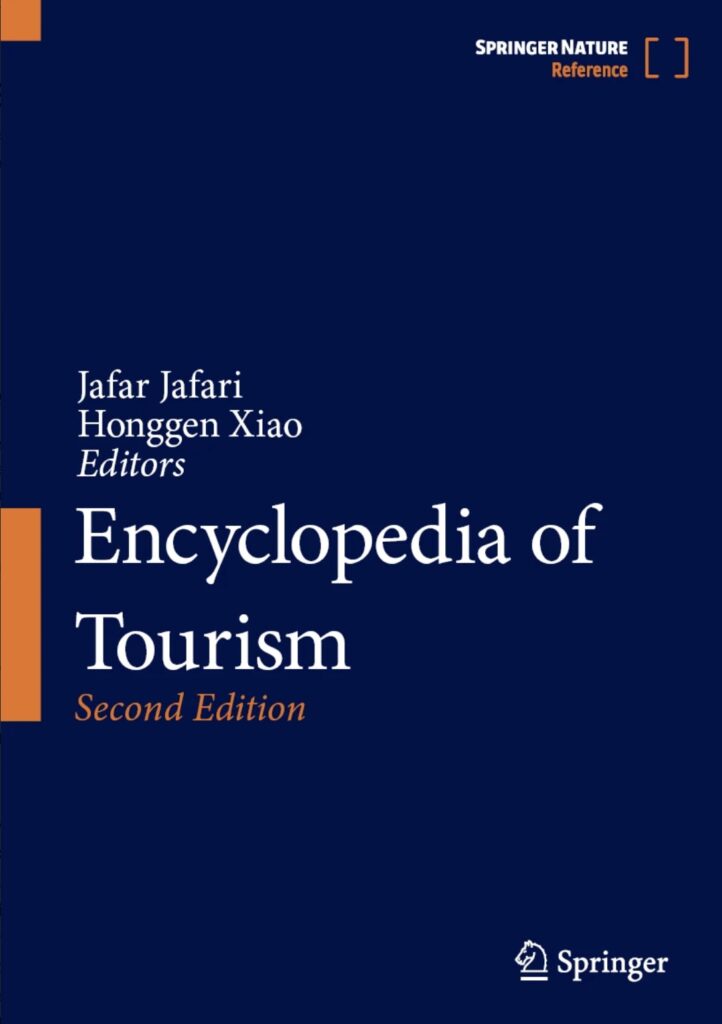
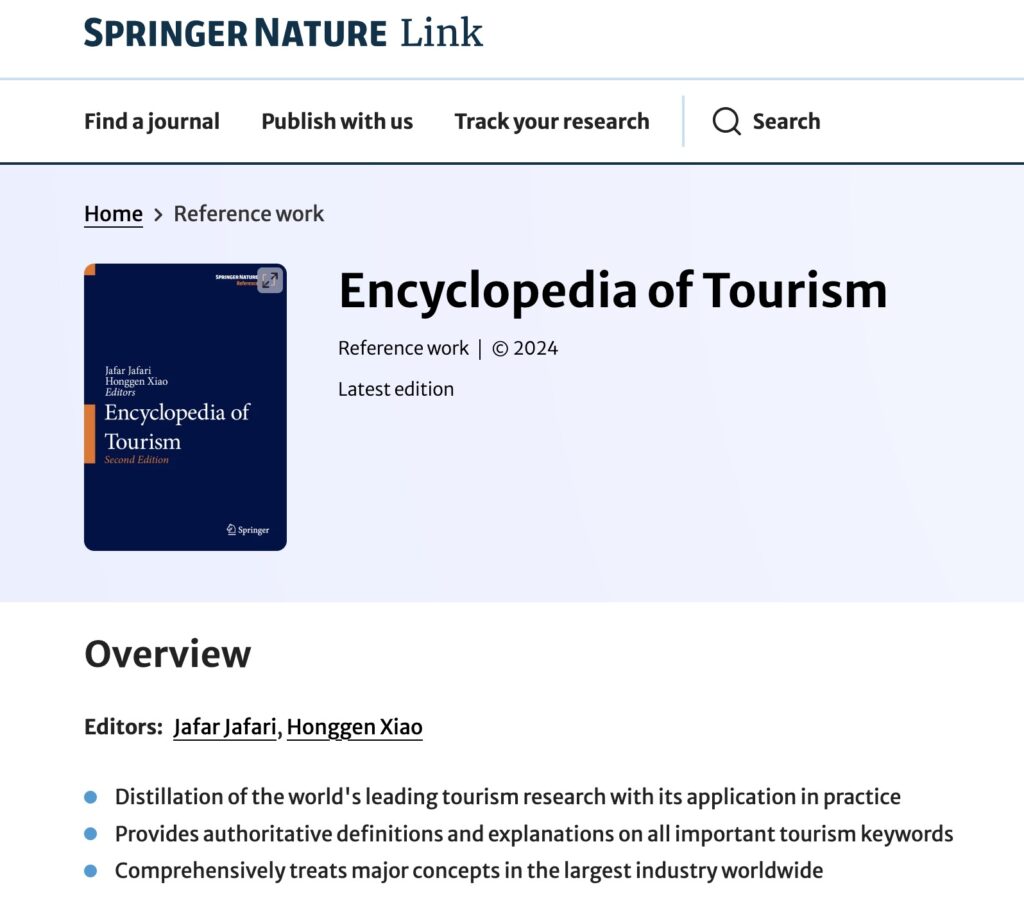
The 769 entries by 871 authors from 124 countries is being positioned as “the most comprehensive and updated source of reference in tourism research and practice.” In their introduction, the co-editors, veteran academics Prof Jafar Jafari of the University of Wisconsin-Stout in Menomonie, USA, and Prof Honggen Xiao of the Hong Kong Polytechnic University, say the encyclopedia has been designed to help readers weave their own “web of tourism knowledge” by following their own interests and inclinations in exploring the various subjects covered.
It says, “Users will find reliable and up-to-date definitions and explanations of the key terms of tourism in this reference book. Tourism is the largest industry in the world and is the main source of income for many countries. With the practical impact of worldwide tourism and the growing number of academic programs and institutions devoted to its education and research, this encyclopedia is the epicenter of this emerging and developing discipline.”
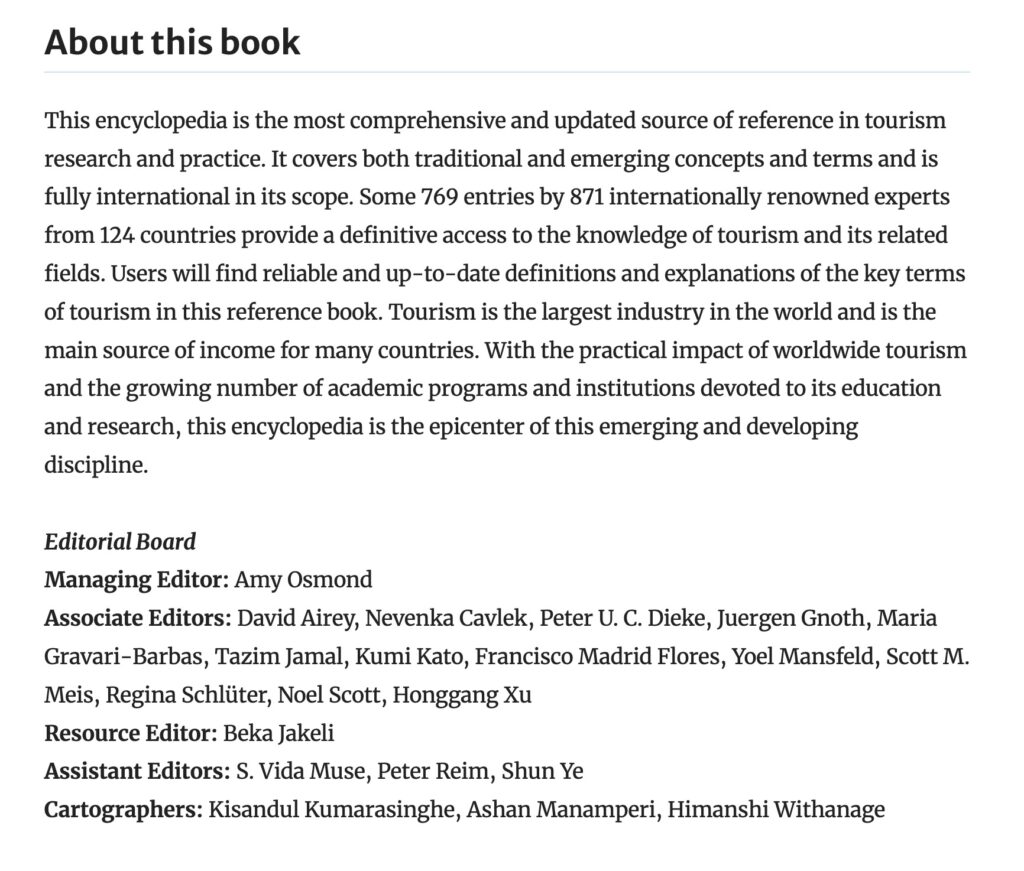
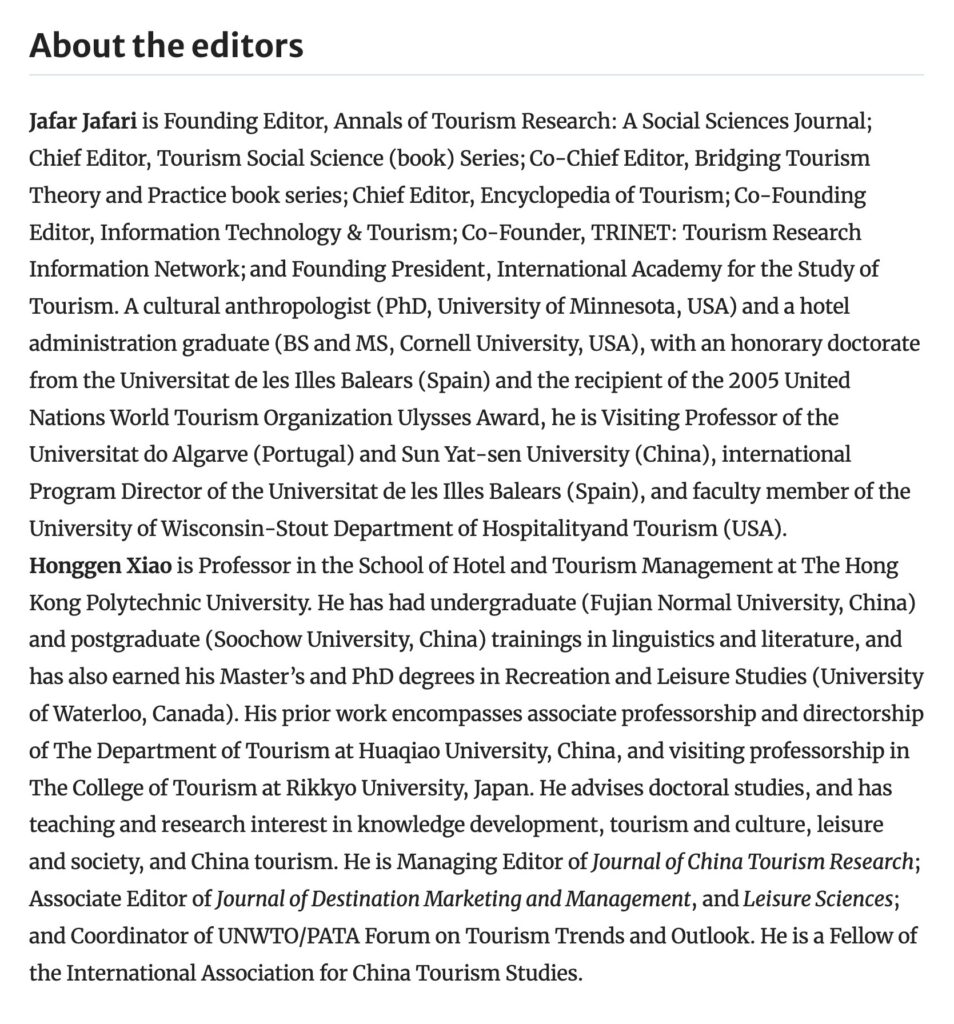
The entries include tourism scenarios in dozens of countries and territories, industry jargon and terminology, and dozens of niche tourism labels. These include popular terms such as: Aboriginal and Indigenous Tourism, Medical Tourism, Film Tourism, Incentive Tourism, Rail Tourism and dozens more.
There is also an entry for “Anti-tourism” and its first cousin, the now omnipresent label “Overtourism” which is defined thus:
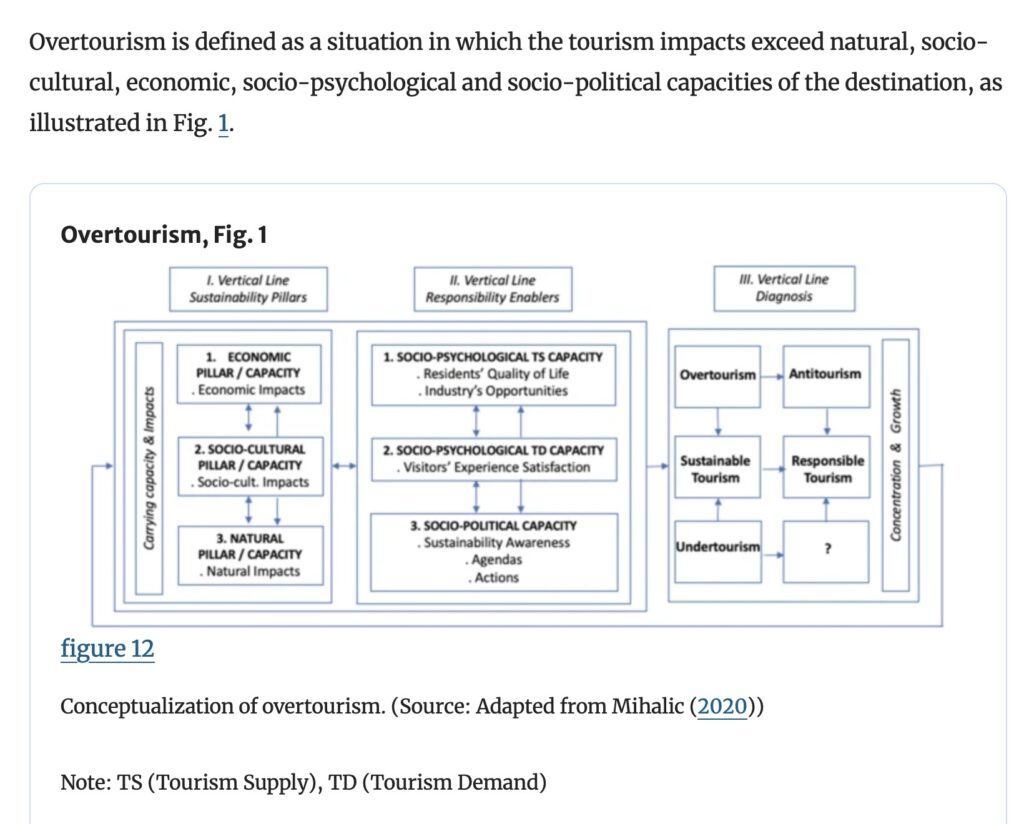
Users will also learn the simple definition of the word “Tourist” as well as more complex terminology like “Posthumanism”, “Postmodernism” and “Allocentric and Psychocentric”.
The co-editors write that the encyclopedia is intended for use by students, instructional staff, and scholars in tourism education programs and research institutions worldwide. Policymakers, consultants, and practitioners including destination marketers, managers, tourism developers and planners, attraction architects, and product designers can also benefit.
They voice hope that it will facilitate “the formation of a public stance that can help tourism assume its legitimate position—side by side with other institutions and industries, in both local and global circles—and enjoy the support it deserves.”
They add, “The encyclopedia is meant to inform, inspire, and prompt its readers to ask challenging questions in order to become more critical of, committed to, and/or involved in tourism research and scholarship.” [This editor’s personal note: Badly needed in this day and age.]
Authors from academic institutions outnumber nonacademic contributors, 95% versus 5%, respectively, 36% of authors are female and 64% male. An earlier edition was published in 2016. A new editorial board was formed in 2020, just at the start of the Covid-19 crisis. All contributions retained from the previous edition were revised (ranging from 10% to over 75%).
This edition has been published both in electronic and print formats. Click here for further details about costs and accessibility.



Liked this article? Share it!